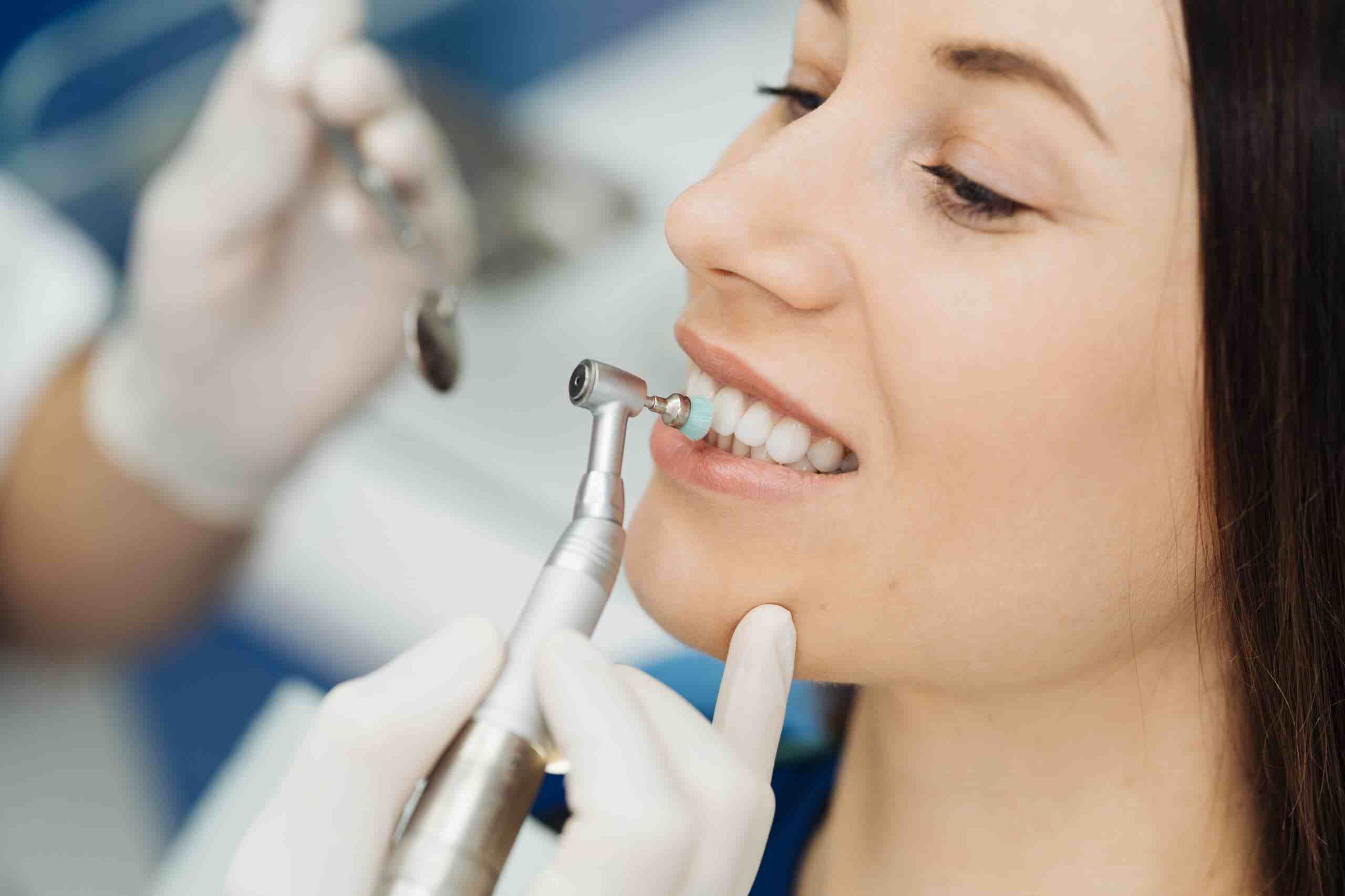know-everything-about-porcelain-veneers
If you want to enhance your smile’s appearance, porcelain veneers are an excellent choice. These custom-made shells can be applied noninvasively and offer a wide range of oral health concerns, from discolouration or cracks in size

What are Porcelain Veneers?
Porcelain veneers are extremely thin layers of porcelain bonded to your teeth’ front surface. They are an ideal solution for correcting aesthetic concerns such as chips, gaps, or misshapen teeth. Veneers can also brighten stained or discoloured teeth that don’t respond well to traditional whitening treatments.
How Are Porcelain Veneers Attached?
The first step in getting porcelain veneers is to consult your dentist to see if you’re a good candidate for the treatment. Once it’s been determined that the veneers are right for you, your dentist will take impressions of your teeth to create custom veneers that fit your smile perfectly.
Once your veneers are ready, your dentist will clean and prep your teeth before bonding the veneers in place. A special light cures the bonding material and ensures a strong, long-lasting hold.
What Are the Benefits of Porcelain Veneers?
Porcelain veneers offer many benefits, both cosmetic and functional. In addition to enhancing the appearance of your smile, porcelain veneers can also:
- Correct misaligned, gapped, or crooked teeth
- Brighten up stained or discoloured teeth
- Protect damaged or weak teeth from further damage
- Improve your oral health overall
- Are There Any Disadvantages to Porcelain Veneers?
Porcelain veneers are a very effective cosmetic dental treatment, but they’re not suitable for everyone. In addition, because they require removing a small amount of tooth enamel, they are not reversible. Once your tooth enamel is gone, it’s gone for good.
In addition, porcelain veneers can be more expensive than other cosmetic dental treatments such as teeth whitening or bonding. However, many patients feel that the long-lasting results and enhanced smile are worth the investment.


What must you know before choosing Porcelain veneers?
They are not removable – Once your dentist bonds porcelain veneers to your teeth, they are there for good.
You may need a root canal – If you have decay or damage beneath the surface of your tooth, you may need a root canal to prepare your tooth for a veneer.
Your gums may recede – Because porcelain veneers require removing a small amount of tooth enamel, your gums may recede over time. This can cause sensitivity and an increased risk of gum disease.
You could experience tooth sensitivity – Some patients experience increased sensitivity to hot and cold temperatures after getting porcelain veneers. This usually goes away after a few weeks, but you should talk to your dentist if it persists. They require extra care – You will need to take special care of your porcelain veneers to keep them looking their best. Be sure to brush, and floss regularly, and avoid biting or chewing on complex objects.
Porcelain veneers are not for everyone – While porcelain veneers offer many benefits, they are not suitable for everyone. If you have decay or damage beneath the surface of your tooth, you may need a root canal to prepare your tooth for a veneer.
What’s the difference between porcelain veneers and composite veneers?
The main difference between porcelain veneers and composite veneers is that porcelain veneers are made of ceramic, while composite veneers are made of plastic resin. As a result, porcelain veneers are more durable and stain-resistant than composite veneers. However, they are also more expensive.
Have any other doubts regarding veneers? then read our blog on The Ultimate Guide To Veneers.
What’s the average cost of porcelain veneers? What factors affect the cost of treatment?
The average cost of porcelain veneers in Australia is $2,500 per tooth. However, the cost of treatment will vary depending on the number of teeth being treated and the case’s complexity. In some cases, insurance may cover part or all of the cost of treatment.
Is there an alternative option to Porcelain veneers?
If you are not a candidate for porcelain veneers, other cosmetic dental treatments can enhance the appearance of your smile. These include teeth whitening, bonding, and crowns. Your dentist will be able to recommend the best treatment option for you based on your individual needs.
Porcelain veneers are an excellent way to enhance the appearance of your smile. However, it’s essential to consult Designer Smiles dentist first to ensure they are right for you. If you want to know whether or not Porcelain veneers are ideal for you, connect with our dentist. Call us at (02) 8074 1722 to book an appointment.
Frequently Asked Questions
It typically takes two appointments to get porcelain veneers. At the first appointment, the dentist will take impressions of your teeth and send them to a dental lab. They will then make a model of your teeth using the impressions and send it back to your dentist. At the second appointment, the dentist will examine the model and determine if you are a good candidate for porcelain veneers. If you are, they will remove a small amount of tooth enamel from your teeth so that the veneers can be fitted securely. The veneers will then be bonded to your teeth with dental adhesive. In case your tooth has a cavity, the dentist will fill it before bonding the veneer to your tooth. This is important because the cavity could cause the veneer to fall off.
The short answer is yes; dental veneers can hurt. However, the level of pain you experience will depend on various factors, including the type of veneers you get and your dentist’s technique. One common type of veneer, porcelain veneers, can sometimes cause slight pain and discomfort after application. This is because attaching them to your teeth involves drilling into your enamel to make room for them. Other veneers, such as composite resin veneers, often don’t cause any pain or discomfort. Your dentist can tell you more about the specific types of veneers available and how they are applied. They will also be able to estimate the level of pain or discomfort you can expect during and after the procedure.
In general, most people report only mild pain or discomfort from getting dental veneers. However, if you have particularly low pain tolerance, your dentist may be able to provide you with a local anaesthetic to numb the area before they begin.
Yes, dental veneers are safe. They are one of the most popular cosmetic dental treatments. Veneers are thin shells of tooth-coloured material bonded to the front surfaces of teeth. They can be used to improve the appearance of teeth that are stained, discoloured, chipped, cracked, or uneven. Veneers are a relatively safe and reversible treatment. However, like all dental treatments, they carry a small risk of complications such as allergic reactions to the bonding materials, chipping or cracking of the veneers, and gum irritation. Porcelain veneers offer many benefits. They are stain-resistant, durable, and natural-looking. Porcelain veneers can also correct a wide variety of dental concerns, such as stained teeth, chipped teeth, gapped teeth, and misshapen teeth. If you are considering porcelain veneers, consulting with a qualified cosmetic dentist is essential. During your consultation, your dentist will evaluate your dental health, discuss your treatment options, and develop a treatment plan that is right for you. decay, limit your sugary and starchy foods, and brush and floss regularly. In addition, see your dentist for a checkup at least twice a year.
It can be a bit more challenging to take care of porcelain veneers than natural teeth, as they are slightly more brittle. However, with proper care, they should last for many years.
Some things you can do to help keep your veneers looking their best include:
- Brushing and flossing regularly (ideally twice a day)
- Avoiding hard or sticky foods that could damage the veneers
- Using a soft toothbrush and gentle cleaning products
- Seeing your dentist for regular check-ups and cleanings
If you experience any problems with your veneers, be sure to see your dentist immediately. They can assess the situation and determine the best course of action.
Yes, there are a few different alternatives to veneers. One option is dental bonding, a cosmetic procedure in which a tooth-coloured resin is applied and then hardened with ultraviolet light. Another option is porcelain dental crowns. Crowns are caps placed over the entire tooth structure above the gum line. They are made of either porcelain or ceramic and can be matched to the colour of your natural teeth. Crowns are more durable than veneers and last longer but are also more expensive. Finally, you could opt for teeth whitening treatments instead of veneers. Whitening treatments will not correct all dental problems, but they can help improve your smile’s overall appearance. If you are considering porcelain veneers, be sure to consult with a qualified cosmetic dentist to discuss all of your options.
